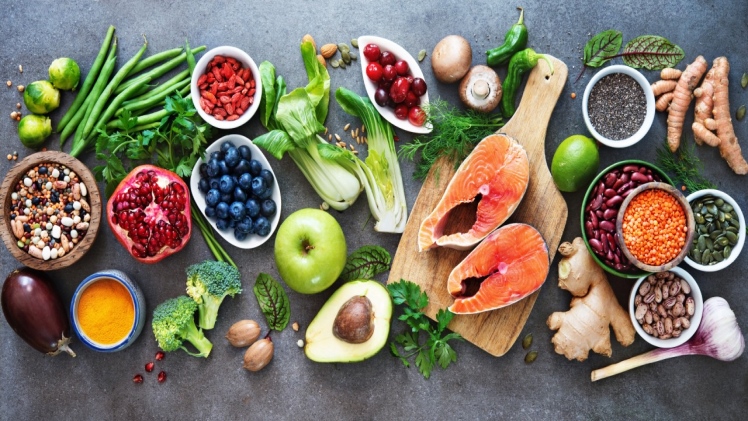When it comes to maintaining a healthy and balanced diet, some foods stand out as essential staples, providing the nutrients, energy, and variety needed for overall well-being. These seven basic foods serve as the cornerstones of nutrition, offering a solid foundation for a wholesome diet. In this article, we will delve into the significance of these fundamental foods and explore their nutritional value.
Section 1: The Seven Basic Foods
The seven basic foods that form the foundation of a balanced diet are as follows:
- Fruits:
Fruits are a rich source of vitamins, minerals, fiber, and antioxidants. They provide essential nutrients and contribute to overall health. Examples include apples, oranges, bananas, and berries.
- Vegetables:
Vegetables are packed with vitamins, minerals, fiber, and phytonutrients. They support digestive health, provide essential nutrients, and offer a wide array of flavors and textures. Common choices include broccoli, spinach, carrots, and bell peppers.
- Grains:
Whole grains are a primary source of carbohydrates, providing energy for the body. They also offer essential vitamins, minerals, and dietary fiber. Examples include brown rice, whole wheat bread, oats, and quinoa.
- Protein-Rich Foods:
Protein is crucial for muscle development, repair, and overall body function. Sources of protein include lean meats, poultry, fish, eggs, beans, tofu, and nuts.
- Dairy and Dairy Alternatives:
Dairy products like milk, cheese, and yogurt are rich in calcium and vitamin D, vital for bone health. Dairy alternatives such as almond milk and soy yogurt offer options for those with lactose intolerance or dietary preferences.
- Fats and Oils:
Healthy fats and oils provide essential fatty acids and play a role in cell structure and the absorption of fat-soluble vitamins. Examples include olive oil, avocados, nuts, and seeds.
- Sweets and Sugars (in moderation):
While sweets and sugars should be consumed in moderation, they can be enjoyed as occasional treats. However, excessive sugar intake can lead to weight gain and health issues.
Section 2: Nutritional Significance of Basic Foods
Each of the seven basic foods offers unique nutritional benefits:
2.1. Fruits:
Fruits are rich in vitamins, particularly vitamin C and various B vitamins, and are a significant source of dietary fiber. They also contain natural sugars, providing a healthy source of energy.
2.2. Vegetables:
Vegetables are loaded with essential vitamins and minerals, including potassium, folate, and vitamin K. They are also low in calories and rich in fiber, making them an ideal choice for maintaining a healthy weight.
2.3. Grains:
Whole grains offer complex carbohydrates, providing sustained energy. They are a source of B vitamins, iron, and dietary fiber, promoting digestive health and reducing the risk of chronic diseases.
2.4. Protein-Rich Foods:
Protein is essential for muscle growth, repair, and overall body function. Meat, poultry, fish, and plant-based protein sources like beans and tofu offer a variety of amino acids necessary for health.
2.5. Dairy and Dairy Alternatives:
Dairy products provide calcium and vitamin D, essential for strong bones and teeth. Dairy alternatives offer similar nutrients while catering to dietary restrictions.
2.6. Fats and Oils:
Healthy fats from sources like olive oil, avocados, and nuts provide essential fatty acids, support brain health, and aid in the absorption of fat-soluble vitamins.
2.7. Sweets and Sugars (in moderation):
While sweets and sugars offer quick energy, they should be consumed sparingly. Excessive sugar intake can lead to weight gain, dental problems, and chronic diseases.
Section 3: The Role of Basic Foods in a Balanced Diet
A balanced diet involves incorporating these seven basic foods in appropriate proportions to meet nutritional needs:
3.1. Macronutrients: Fruits, vegetables, grains, and protein-rich foods provide carbohydrates, proteins, and fats—the three essential macronutrients necessary for energy and bodily functions.
3.2. Micronutrients: Fruits, vegetables, and dairy products supply essential vitamins and minerals, including vitamin C, potassium, calcium, and iron, supporting various bodily functions.
3.3. Fiber: Whole grains, fruits, and vegetables offer dietary fiber, which aids digestion, promotes fullness, and helps maintain healthy cholesterol levels.
3.4. Protein and Muscle Health: Protein-rich foods are crucial for muscle development, repair, and overall body function.
3.5. Hydration: Water, primarily obtained from fruits and vegetables, is vital for maintaining the body’s fluid balance and preventing dehydration.
3.6. Bone Health: Dairy products and calcium-fortified alternatives contribute to strong bones and teeth, particularly in growing children and older adults.
Section 4: Balancing Basic Foods in Daily Meals
To achieve a balanced diet, it’s essential to incorporate these basic foods into daily meals. Here’s how to do it effectively:
4.1. Variety: Include a wide range of fruits, vegetables, grains, and protein sources in your meals to ensure a diverse nutrient intake.
4.2. Portion Control: Be mindful of portion sizes to prevent overeating and maintain a healthy weight.
4.3. Meal Planning: Plan meals that incorporate all seven basic foods to ensure balanced nutrition throughout the day.
4.4. Moderation with Sweets: Enjoy sweets and sugars in moderation as occasional treats, rather than a regular part of your diet.
Section 5: Conclusion
The seven basic foods—fruits, vegetables, grains, protein-rich foods, dairy and dairy alternatives, fats and oils, and sweets (in moderation)—form the cornerstone of a balanced diet. By understanding their nutritional significance and incorporating them into daily meals, we can ensure that our bodies receive the essential nutrients needed for overall health and well-being. These basic foods offer a wide array of flavors, textures, and culinary possibilities, making it easier and more enjoyable to maintain a healthy diet.


